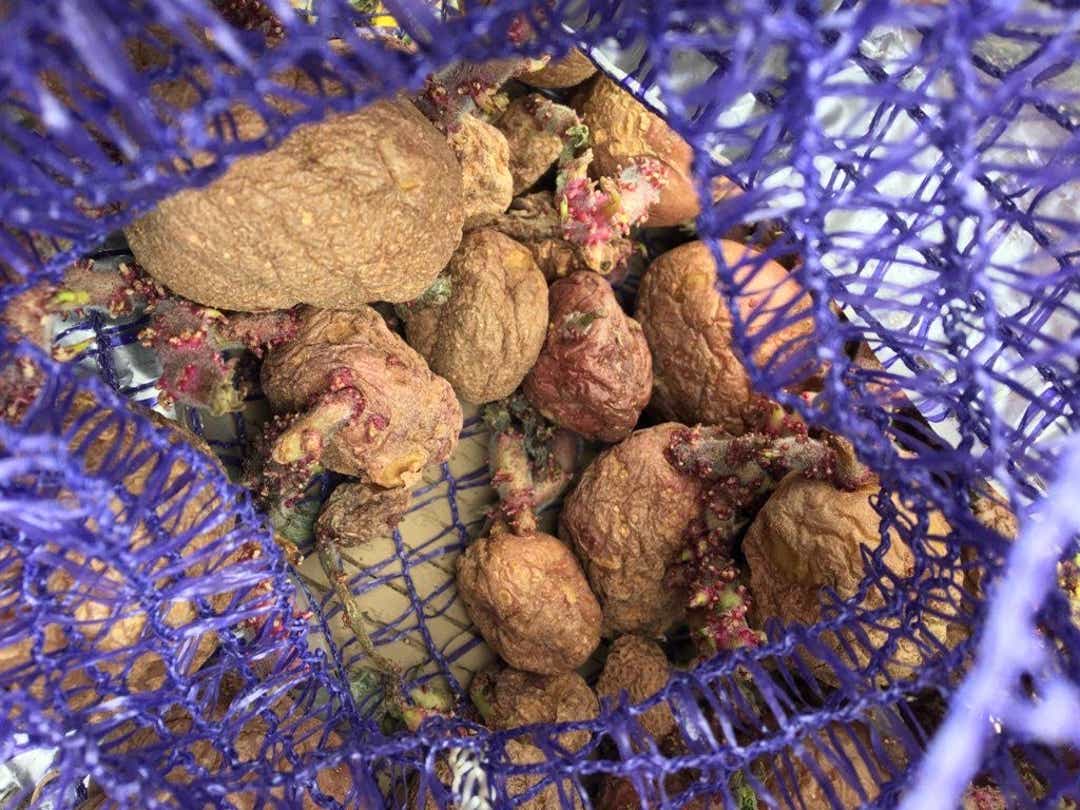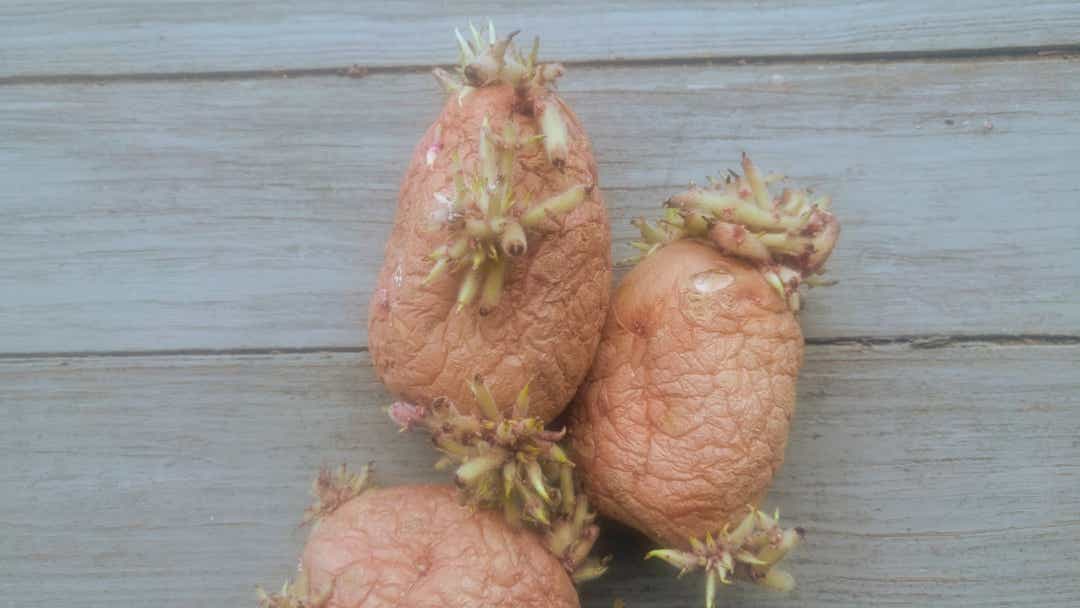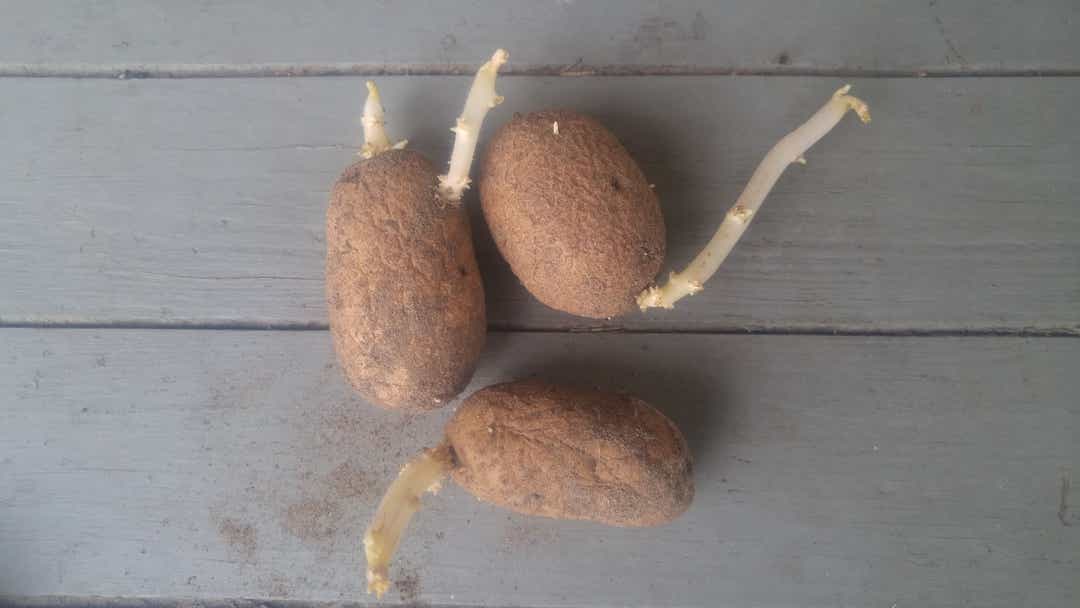It’s no surprise the lockdown has resulted in an increased interest in gardening, which in turn has caused a seed and plant shortage. Many seed suppliers have stopped accepting new orders while others are sold out of most, if not all, of their inventory. So many gardeners are left in a quandary since there’s nothing to plant -- what to do, what to do.
The shortage might give someone the idea of buying supermarket potatoes and planting them as an alternative to seed potatoes. For those who have never grown potatoes before, potatoes are not grown from true seeds but from potato tubers or pieces of tubers called “seed potatoes”.
It’s usually not recommended to use supermarket tubers in the garden, but desperate times call for desperate measures.
Potatoes can sometimes be grown from those, depending on some factors. Just be very aware that you would be taking a risk of introducing diseases, nematodes or viruses into your garden that weren’t there before. There’s no way of knowing ahead of time whether or not the potatoes meant for cooking carry the microorganisms responsible for diseases.
Certified disease-free seed potatoes are the only ones recommended by experts. That being said, there are plenty of non-certified seed potatoes sold to gardeners every year.
A major problem is, virtually all potatoes sold in supermarkets are treated with a sprout inhibitor of one kind or another to keep them from sprouting in storage. After all, who wants to buy sprouted potatoes? Even organic potatoes are treated. It’s a different mode of action for the material organic farmers use but the end results are much the same.
Depending on what kind of chemical the farmer used, a supermarket potato may never sprout and would just end up rotting in your garden. And if it did emerge from the soil, might not produce a healthy enough plant to yield a crop. Of course you may get lucky and purchase potatoes that were treated with one of the milder inhibitors, in which case, a crop could be grown.
Growing a potato crop from old/expired potatoes is another possibility. I think most people have had the experience of deciding to cook some potatoes. Then remembered that it was several weeks since the last time they looked at their bag of potatoes when they found tubers that were sprouted, shriveled and nasty looking.

Those kinds of old potatoes can give you an indication of whether or not you could expect reasonable success if they were to be planted.
Short, clustered sprouts could grow but may or may not develop into productive plants.

Strong sprouts with some length to them indicates the tuber is ready, willing and able to grow in the garden.

Potatoes can tolerate cool soil and light spring frost so they may be planted soon. I’ll be planting mine this week or early next week if the weather straightens out. If the soil is too cold, it ends up delaying the emergence of the plants and any gains made by planting early could possibly be cancelled out.
Cut potato tubers into pieces before planting ranging from one inch up to a medium egg in size making sure there is an eye one each piece. Cutting several days before planting gives the cut tuber a chance to heal over a bit thereby reducing the chance of it rotting in the soil after planting.
The tubers can be planted at grade in the garden or in raised beds in either rows or mounds at a depth of 3 inches or so. They are also happy growing in large pots or other containers. A quick search online will turn up all kinds of imaginative ways people have come up with to grow potatoes.
Plant sprouted potatoes with the sprout left on. That can be hard to do because the sprouts are easily broken off at this stage. If they are broken off, other buds will sprout replacing the broken sprout.
Keep in mind that potato plants are heavy feeders, meaning they require a very fertile soil in order to grow. Soil fertility is improved by adding compost or fertilizer.
Potatoes need more water than some other garden plants, so make sure you have a way to keep your plants well irrigated, but not soggy, through the growing season.
Potato plants will not produce up to their potential unless they are exposed to least six hours of direct sunlight per day, and the more sunlight, the better.
Farmers expect well-grown potato plants to yield 3 to 5 pounds of potatoes each.
"potato" - Google News
April 24, 2020 at 04:52AM
https://ift.tt/2yHD3wp
Mixed results by planting supermarket potatoes during the garden supply shortage - The Detroit News
"potato" - Google News
https://ift.tt/2rh4zOj
Shoes Man Tutorial
Pos News Update
Meme Update
Korean Entertainment News
Japan News Update
Bagikan Berita Ini














0 Response to "Mixed results by planting supermarket potatoes during the garden supply shortage - The Detroit News"
Posting Komentar